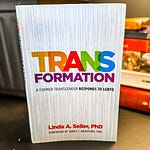Pentecostal Evangel Publication No. 3675
Used for public discourse and education.
Substack Generated Transcript
*Mistakes may be present
(00:00:00):
So this week I was scrolling through Facebook,
(00:00:02):
and I'm a part of several different Assemblies of God Facebook groups,
(00:00:08):
different various ones specific for ministers,
(00:00:10):
some not.
(00:00:12):
And there was a couple of times that I'll see posts that get cross-posted between different groups.
(00:00:18):
And yesterday was one of those times.
(00:00:21):
And I saw an excerpt from an old Assembly of God magazine called the Pentecostal Evangel,
(00:00:28):
which I really enjoy going back and looking at several of the older editions.
(00:00:32):
But there was this article itself.
(00:00:34):
The broader article was called Christian Involvement in the Electoral Process.
(00:00:39):
And there was a section of that called 10 Guidelines for the Christian Voter.
(00:00:44):
And on Facebook, I didn't see the whole article.
(00:00:47):
I saw just the simple box with 10 bullet points of what this author called 10
(00:00:51):
Guidelines for Christian Voters.
(00:00:53):
And here's the catch.
(00:00:55):
This article was published on October 14th, 1994.
(00:01:02):
And the writer here, his name is Dennis Huber, W. Dennis Huber, published this piece 40 years ago.
(00:01:12):
80 to 2000 would have been 20 plus 24, so 40 years ago now.
(00:01:19):
Um, we've seen, um, 10 different election cycles since then.
(00:01:24):
And this was an election year.
(00:01:26):
I forget if I'm memories correct.
(00:01:29):
That would have been after Nixon, I believe.
(00:01:32):
Um, so who was 84?
(00:01:32):
It was someone in that range.
(00:01:35):
Nixon, Reagan is, I don't know.
(00:01:38):
I'm like a fact check me on that, but
(00:01:41):
I'm assuming it was probably an important election.
(00:01:44):
They say at multiple times throughout this specific issue,
(00:01:48):
the whole issue,
(00:01:48):
30 pages,
(00:01:50):
that it seemed obvious that there was stuff going on in the world at that point
(00:01:56):
that was pretty contentious.
(00:01:59):
I thought it was interesting.
(00:02:00):
I thought there was a few points for one of my first videos here on the newly
(00:02:08):
called pentaliturgical pastor that I thought would be interesting to go back 40 years.
(00:02:17):
and see what the Pentecostals of the 80s were writing.
(00:02:20):
And this was so funny that I saw this post and it was so well received because I
(00:02:25):
think there is a growing number of people outside of the polar majorities.
(00:02:32):
Obviously,
(00:02:33):
I think there's the majority of people fall either on one side of the aisle or the
(00:02:38):
other side of the political aisle,
(00:02:39):
to say the least.
(00:02:41):
But I think there's a growing portion of people who understand that American
(00:02:46):
politics aren't as simple to the Christian.
(00:02:49):
And this is really, I think, a key article because 40 years ago, this is so relevant for today.
(00:02:54):
I'm going to read...
(00:02:56):
the 10 guidelines for Christian voters first.
(00:02:59):
And then I'm going to note a few things from W. Dennis Huber's article.
(00:03:05):
It's two pages.
(00:03:06):
It's pretty short, but it's called Christian Involvement in the Electoral Process.
(00:03:11):
October 14th, almost 40 years ago, next month, October 14th, 1984.
(00:03:16):
And this is what it says. 10
(00:03:19):
guidelines for Christian voters, specifically Pentecostal Christian voters.
(00:03:23):
This is from the Pentecostal Evangel,
(00:03:25):
one of the key publications of the Assemblies of God,
(00:03:28):
my Pentecostal denomination fellowship.
(00:03:33):
This is what it says, 10 guidelines for Christian voters.
(00:03:35):
Number one,
(00:03:36):
Do not confuse patriotism, national pride, and Western culture with Christian faith and practice.
(00:03:44):
Do not confuse patriotism, national pride, and Western culture with Christian faith and practice.
(00:03:53):
Number two,
(00:03:53):
do not confuse secular political activity with the purpose of the church,
(00:03:59):
nor campaigning with witnessing and preaching.
(00:04:03):
So I'm going to clarify that probably doesn't need to be clarified,
(00:04:06):
but don't confuse secular political activity.
(00:04:09):
So political activity, that's not Christian, right?
(00:04:12):
which the vast majority should or ought to be, right?
(00:04:16):
So don't confuse secular political activity with the purpose of the church,
(00:04:20):
so the gospel,
(00:04:21):
the mission of the church,
(00:04:22):
nor campaigning,
(00:04:24):
advocating for political leaders,
(00:04:26):
with witnessing or preaching that means advocating for a candidate is not the same
(00:04:32):
as evangelistic witnessing or preaching number three do not make slanderous or
(00:04:39):
false accusations against your opponents but make maintain your integrity do not
(00:04:44):
consider a brother or sister
(00:04:47):
who is of like precious faith an adversary if he or she holds a different political view.
(00:04:56):
Wow,
(00:04:56):
that one I think is incredibly important for this current political moment where
(00:05:02):
everything is based out of a slanderous nature.
(00:05:07):
I'm sick of the political ads already and we still have two months to go in this election cycle.
(00:05:13):
Everything is slander.
(00:05:15):
And are there hotly debated points of contention?
(00:05:18):
Yes.
(00:05:19):
Are there things that we drastically disagree on?
(00:05:21):
Yes, absolutely, obviously.
(00:05:24):
But slander and personal integrity are seemingly absent from the political sphere.
(00:05:35):
And I think I watched a couple of videos a couple of weeks ago where it was the
(00:05:40):
2008 election,
(00:05:40):
the first election I genuinely remember,
(00:05:45):
Mitt Romney,
(00:05:47):
or was that John McCain?
(00:05:48):
I can't remember.
(00:05:50):
No, it was John McCain.
(00:05:51):
John McCain and Barack Obama.
(00:05:53):
Mitt Romney was the next one.
(00:05:55):
So John McCain and Barack Obama.
(00:05:57):
John McCain was at a political function, a town hall, something like that.
(00:06:02):
And a woman was slandering President Obama, who is about to be elected the president.
(00:06:09):
So he wasn't president yet, senator at that time.
(00:06:11):
So,
(00:06:12):
but John McCain came to his opponent's defense and said,
(00:06:15):
no,
(00:06:15):
no,
(00:06:16):
we agree,
(00:06:17):
we disagree on very serious issues about American politics,
(00:06:21):
but he wasn't going to allow them to slander his opponent.
(00:06:24):
Number three,
(00:06:24):
do not make slanderous or false accusations against your opponents,
(00:06:28):
but maintain your integrity.
(00:06:29):
Remember, this is 10 guidelines for Christian voters.
(00:06:34):
We are obviously not going to be able to uphold standards like this to unbelievers
(00:06:38):
because they don't have the same moral guidelines or the same belief system as we do.
(00:06:42):
But I think really timely.
(00:06:44):
Number four,
(00:06:45):
at all times,
(00:06:47):
endeavor to verify information before accepting it as true or repeating it to others.
(00:06:55):
And point of clarification here,
(00:06:56):
if you're interested in this document,
(00:06:59):
I'll post the two pictures or the PDF to the actual post here from the Pentecostal
(00:07:05):
Evangel in the text portion of the video here,
(00:07:09):
lower down below the video.
(00:07:11):
If you want to take a look at this specifically.
(00:07:13):
But number four,
(00:07:14):
at all times,
(00:07:15):
endeavor to verify information before accepting it as true or repeating it to others.
(00:07:20):
How often with social media are we able to share things?
(00:07:24):
No time before this was this possible.
(00:07:27):
And that's why I think the polarization of the political sphere has evolved the way it has.
(00:07:32):
How it's become so polarizing.
(00:07:34):
So much animosity exists in conversations
(00:07:39):
conversations about politics in our daily conversations with people.
(00:07:43):
We can be so hostile,
(00:07:45):
so filled with hate and anger towards one another because social media has created
(00:07:50):
a world in which you can share something instantly without having really any time
(00:07:55):
to think about it,
(00:07:56):
any research,
(00:07:57):
any investment.
(00:07:59):
It doesn't matter because you just post it and move on.
(00:08:02):
Whereas before,
(00:08:03):
if you were going to have a conversation,
(00:08:04):
you probably face-to-face wanted to know what you were talking about.
(00:08:07):
Or at least you believed something so strongly that it didn't matter.
(00:08:10):
And then second,
(00:08:12):
if you were going to write something on something other than social media,
(00:08:17):
you were either writing it personally or you were going to be scrutinized because
(00:08:21):
it was public.
(00:08:22):
And it was going to be something seen rather largely.
(00:08:26):
So number four, I thought was incredibly, endeavor to verify all information.
(00:08:31):
Number five,
(00:08:32):
at all times endeavor to know and understand the candidate's position and evaluate
(00:08:37):
him or her on that basis,
(00:08:39):
on the basis of his or her ability to perform the duties and functions of the
(00:08:43):
office and his or her integrity.
(00:08:46):
Just a solid point.
(00:08:48):
Number six, at all times endeavor to know and understand the issues.
(00:08:54):
Do not excuse yourself from this duty by saying, God will show me whom to vote for.
(00:09:01):
Another solid one.
(00:09:02):
Number seven,
(00:09:03):
at all times,
(00:09:04):
compare a candidate's position with Scripture,
(00:09:06):
but not only where Scripture addresses the issue.
(00:09:10):
Do not force Scripture to do or to address issues that the author did not intend to address.
(00:09:19):
So don't look just at the issues that the author is saying in Scripture.
(00:09:25):
Look at other exterior issues.
(00:09:28):
Sometimes there's not going to be a direct correlation to a modern problem with a biblical truth.
(00:09:33):
But looking at other aspects that are jointly connected or running alongside one another, look at those.
(00:09:40):
And then don't apply things that Scripture says that aren't directly connected with
(00:09:47):
what the candidate says.
(00:09:49):
Number eight,
(00:09:51):
neither vote nor work for a candidate merely because he or she professes a
(00:09:58):
Christian faith.
(00:09:58):
Um,
(00:10:04):
I mean, that's pretty, I don't know how popular that would be today for people to say.
(00:10:10):
Just because someone's a Christian, don't vote for them.
(00:10:14):
We're studying through the book of James.
(00:10:17):
Faith without works is dead.
(00:10:18):
So if someone just says they have faith,
(00:10:20):
but their works don't align with that faith,
(00:10:23):
I think that point ties in nicely.
(00:10:25):
Do not neglect your family, worship, prayer, or Bible study.
(00:10:29):
In an election time,
(00:10:30):
in a time where our community,
(00:10:32):
our nation,
(00:10:33):
is going to drastically be impacted,
(00:10:35):
it is absolutely essential for us not to neglect the family,
(00:10:39):
our own local ministry,
(00:10:42):
right?
(00:10:42):
The family is the context from which every single person is responsible to minister to.
(00:10:49):
Worship,
(00:10:50):
to not neglect giving the Lord praise,
(00:10:53):
not neglect prayer,
(00:10:54):
the most essential aspect,
(00:10:56):
the most foundational piece of the Christian life,
(00:10:59):
and Bible study,
(00:11:00):
to not be well-grounded in the Scripture,
(00:11:02):
in the Holy Bible,
(00:11:04):
is incredibly important.
(00:11:05):
And then 10,
(00:11:06):
this is something I think would drastically challenge and not condemn,
(00:11:12):
that it would drastically convict us that sometimes our heart is not in the correct position.
(00:11:19):
But at all times, uphold your leaders in prayers.
(00:11:24):
Critically important.
(00:11:25):
Critically important.
(00:11:28):
At all times, uphold your leaders in prayer.
(00:11:30):
It doesn't matter whether you agree with them or not.
(00:11:33):
They need the Lord because there is evil in this world.
(00:11:38):
There are dark forces in this world.
(00:11:40):
And without the power of prayer,
(00:11:43):
we allow those candidates,
(00:11:46):
those people in positions of power,
(00:11:48):
those leaders—
(00:11:49):
We allow them to go through those things,
(00:11:53):
those decisions,
(00:11:55):
to make decisions,
(00:11:56):
and we aren't committing to pray for them and allowing the Lord to work through us
(00:12:02):
in our prayers.
(00:12:04):
So those are the 10, 10 guidelines for Christian voters, and I think they're so essential for today.
(00:12:10):
So timely for today, even though they're written 40 years ago by Dennis Hubert, W. Dennis Hubert.
(00:12:16):
Okay, there was one thing that I thought was incredibly important in the main body of this article here.
(00:12:24):
And let me read it to you.
(00:12:26):
It's near the beginning of the article.
(00:12:30):
You know, I'm just going to read the first two paragraphs just to give you the full context.
(00:12:35):
The beginning of the article.
(00:12:36):
Being a Christian does not automatically make a person more capable or knowledgeable.
(00:12:43):
We know that to be true.
(00:12:45):
Back into the article.
(00:12:46):
Being a Christian does not necessarily give better insight into political issues.
(00:12:52):
I know many fine Christians whom I would not like to see in any public office for a variety of reasons.
(00:12:59):
A Christian loses effectiveness if he,
(00:13:04):
A,
(00:13:04):
so now there's a list here,
(00:13:06):
A,
(00:13:06):
tries to spiritualize every insignificant law.
(00:13:09):
B, is a one-issue person.
(00:13:16):
Example here, he gives an example, pro-life.
(00:13:20):
And knows nothing about other issues.
(00:13:22):
Example, nuclear arms, jobs, etc.
(00:13:25):
Or C, is prejudiced against other religions or denominations.
(00:13:32):
So I guess that was just really the first two paragraphs here is not really the proper term.
(00:13:37):
But I think there's an important aspect of this quote here that we should address
(00:13:44):
as a penitential liturgical pastor.
(00:13:48):
I think it's timely for today.
(00:13:52):
And this might upset some people, but...
(00:13:56):
You know,
(00:13:56):
if it was said 40 years ago from an attorney,
(00:14:02):
Dennis Huber is an attorney in New York in a licensed Assembly of God minister.
(00:14:07):
I don't know if he's still alive or not.
(00:14:10):
But he said this 40 years ago, and I think it's true.
(00:14:13):
He says we lose—notice what the word is saying here, what he's saying here.
(00:14:18):
We lose effectiveness.
(00:14:20):
Not that we are wrong,
(00:14:21):
not that we're not intelligent,
(00:14:23):
not that we're not good voters,
(00:14:24):
not that we're not good Christians.
(00:14:26):
We lose effectiveness.
(00:14:28):
Effectiveness, witness of the gospel, is the primary thing we are called to do by God.
(00:14:35):
At my church, we call it Commission Church for a specific reason.
(00:14:38):
We focus and center our lives on the Great Commission, Matthew 28, 19.
(00:14:45):
Jesus commanded them,
(00:14:46):
go into all the world,
(00:14:47):
making disciples of all nations,
(00:14:49):
baptizing them in the name of the Father,
(00:14:50):
Son,
(00:14:50):
and the Holy Spirit,
(00:14:53):
teaching them to obey the commandments.
(00:14:56):
The key here,
(00:14:59):
witness, and effectiveness.
(00:15:03):
And Huber here says that we lose our effectiveness if we are a single issue person.
(00:15:11):
And I have heard this argument so often,
(00:15:13):
and I'm not saying it's not necessarily true,
(00:15:16):
because here's the thing.
(00:15:18):
I am as pro-life as they get.
(00:15:20):
I do not like abortion one bit.
(00:15:24):
and that might not be a popular opinion but the reality is i believe that god has
(00:15:29):
created each and every individual each and every life specific unique blessed
(00:15:35):
beautiful and important and i believe that holistically i believe that from the
(00:15:40):
moment you die or from the moment you're conceived to the moment you die and even
(00:15:45):
beyond into the life to come right because that's an important part too
(00:15:49):
but specifically your earthly life you have value regardless of what um happens to
(00:15:56):
you what you do what you are like every aspect of that doesn't matter you have an
(00:16:00):
errant value because you are created by god and that's why i'm pro-life i believe
(00:16:06):
that abortion's wrong i believe that killing is an evil act right
(00:16:13):
I don't necessarily agree that capital punishment is a great idea, right?
(00:16:19):
I understand why some people might not agree with that,
(00:16:23):
but at the same time,
(00:16:24):
I don't think that taking another person's life,
(00:16:27):
unless it is the divine providence of God,
(00:16:32):
which I don't think anyone can argue is a part of the American legal system,
(00:16:38):
It was not something that worked well for Israel when they were experiencing the theocratic rule of God.
(00:16:46):
And it's definitely not something I think the American system would venture into wisely.
(00:16:51):
And so I'm entirely pro-life, but here's the reality.
(00:16:55):
If you're voting for someone specifically,
(00:16:57):
and you just say the only reason I'm voting for someone is because of a single issue,
(00:17:01):
I don't think that is morally responsible because life is not a single issue.
(00:17:08):
And I think the wise words of this Pentecostal writer from the 80s is incredibly helpful.
(00:17:15):
And it's not to say that you're not smart.
(00:17:16):
It's not to say that you're a bad person.
(00:17:18):
It's not to say you're a bad Christian.
(00:17:19):
None of those things is what this writer said.
(00:17:21):
He says that we lose effectiveness because when we vote on a single issue,
(00:17:26):
when that is the swinging principle,
(00:17:29):
reality of what we decide to vote on,
(00:17:32):
we lose effectiveness in the eyes of people and we lose our witness,
(00:17:36):
our Christian effectiveness,
(00:17:38):
our Christian witness.
(00:17:39):
And the world is bigger than one issue.
(00:17:43):
American politics is bigger than one issue.
(00:17:45):
And I'm not going to say come here to you and tell you who to vote for.
(00:17:51):
I'm not going to tell you who I'm going to vote for because that's not important.
(00:17:55):
That's not what this is for.
(00:17:57):
The importance is there is a distinct Christian way to go about how we engage in political activity.
(00:18:04):
And these guidelines,
(00:18:07):
the 10 that I gave you,
(00:18:07):
and then that one single thought that I thought was so incredibly powerful is that
(00:18:11):
we should not be single issue people.
(00:18:13):
We should be for all aspects of life because that's what Jesus was for.
(00:18:18):
Jesus spoke to people not only in their spiritual need, but he addressed their physical needs.
(00:18:24):
He addressed the needs of those who were hungry.
(00:18:26):
He addressed the needs of those who did not have access to healthcare.
(00:18:30):
The man who was not able to get into the pool when the waters were stirred up.
(00:18:34):
and everyone else beat him to the pool jesus healed that man to the poor who had no
(00:18:40):
ability to move up in society he and befriended he allowed them to the social
(00:18:45):
outcasts to the religious outcasts um to the widows his commit his command to his
(00:18:53):
followers to take care of the orphans the widows all of those have so many
(00:18:57):
different aspects in our communal life
(00:19:01):
And to say that we're voting on one issue or to abandon these 10 guidelines changes
(00:19:11):
our Christian witness.
(00:19:12):
So I thought this was a great article.
(00:19:14):
If you're interested in reading it, I'll link it below.
(00:19:16):
I think it's incredibly helpful and incredibly timely coming 40 years after the fact it was written.
(00:19:23):
40 years almost to the day next month.
(00:19:25):
So I hope you encourage you with this short little political talk.
(00:19:29):
Hopefully I didn't scare you all away.
(00:19:30):
I don't think anything I said should be too controversial.
(00:19:37):
I think all of these points should be generally accepted.
(00:19:41):
I mean, it's Jesus alone is the answer.
(00:19:47):
It's not about red or blue.
(00:19:49):
It's not about any political affiliation.
(00:19:52):
It's simply about the world needs Jesus.
(00:19:55):
And to be a follower of Jesus is to view everything through his lens.
(00:19:59):
And that's what we're going to try to do.
(00:20:01):
That's what this pastoral journey for me and learning how to deal with people of
(00:20:07):
all kinds of belief systems,
(00:20:10):
all kinds of personal opinions.
(00:20:12):
but coming together and acknowledging the simple fact that only Christ,
(00:20:17):
the soon-coming King,
(00:20:18):
only Jesus the Lord,
(00:20:20):
the Savior of all,
(00:20:22):
is the lens in which we can make sense of all of these complicated issues.
(00:20:25):
So hopefully you enjoyed that, and hopefully next time we'll be able to have more conversations together.














Share this post